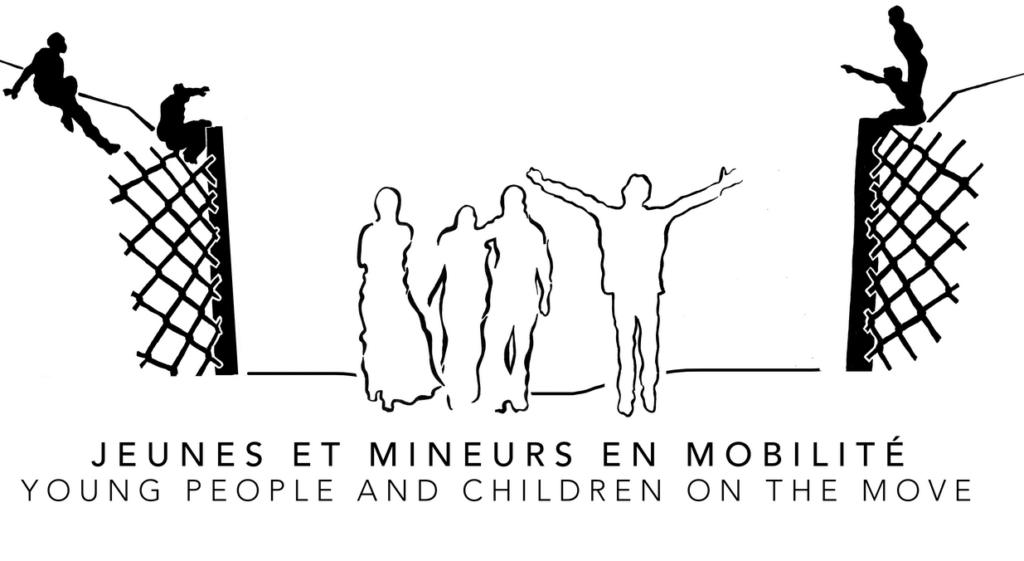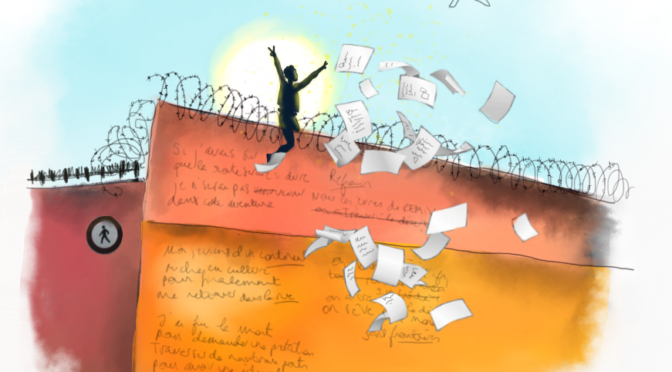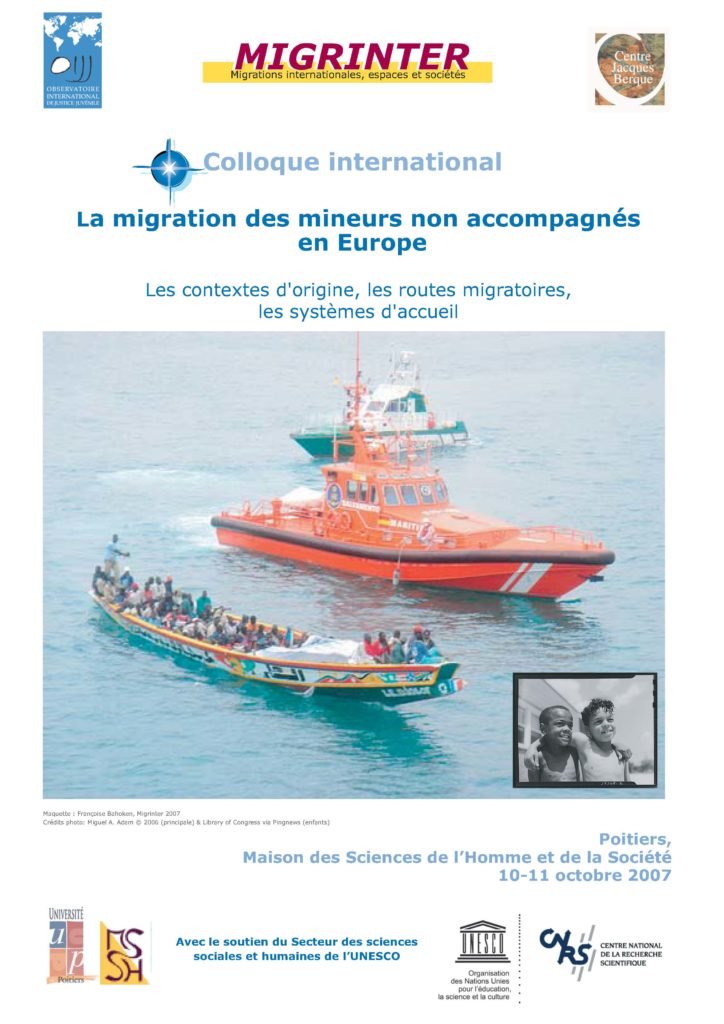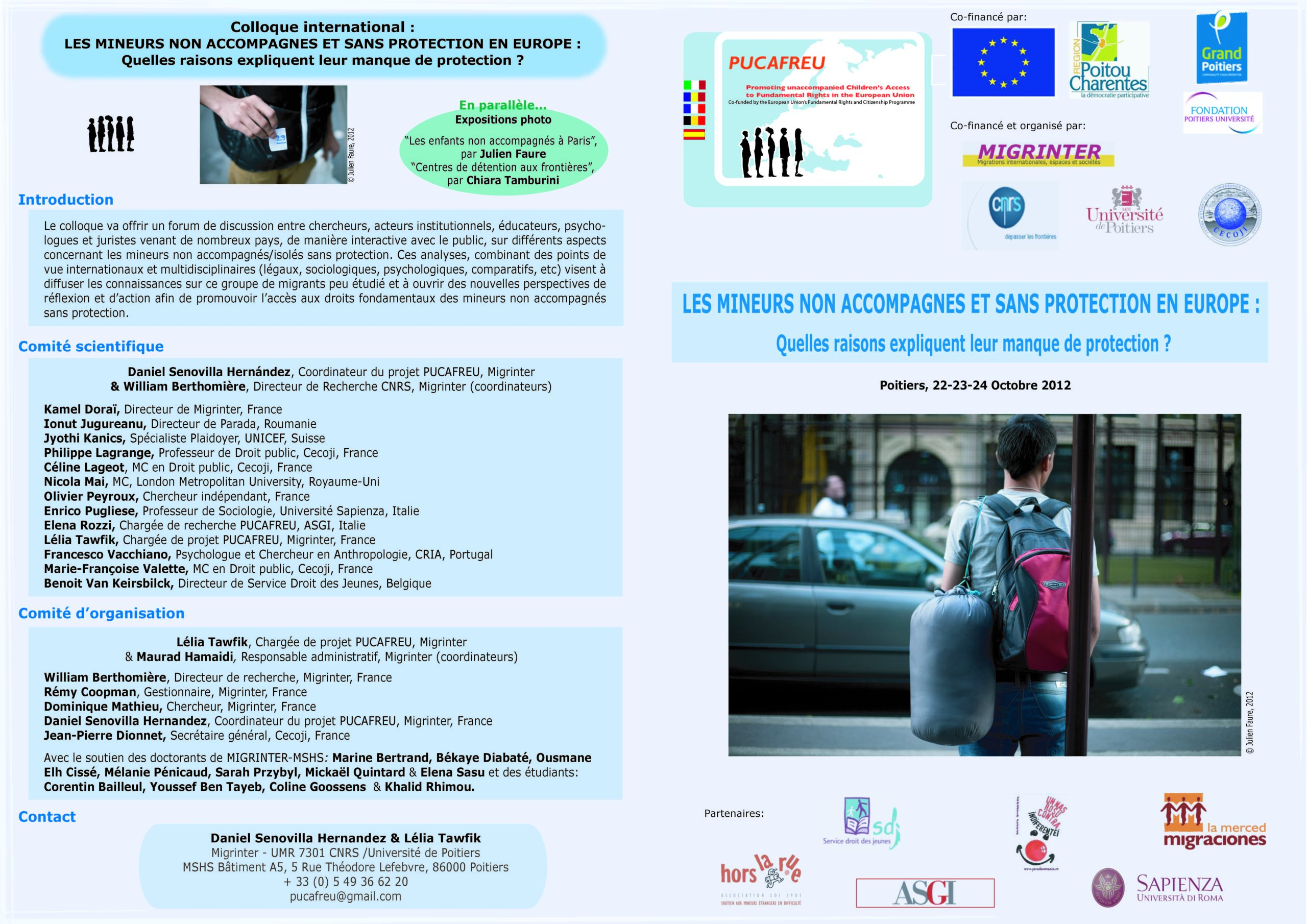
Dans le cadre de son objectif de valoriser et diffuser les travaux au niveau international sur la migration de jeunes et de mineurs, l’Observatoire de la Migration des Mineurs a créé en 2015 la revue ‘Jeunes et Mineurs en Mobilité’ (JMM).
L’objectif n’est pas de proposer une revue académique de plus adressée à un public uniquement universitaire ou d’experts, mais plutôt de continuer à entretenir notre volonté- affichée depuis plusieurs années- de favoriser des synergies de travail et des passerelles entre les mondes académique et professionnel et le grand public.
Qui plus est, l’équipe de rédaction veillera à impliquer les jeunes migrants eux-mêmes dans l’élaboration des contenus de la revue. Dans la lignée de nos recherches passées et en cours, la parole (et autres moyens d’expression) des jeunes et des mineurs migrants occuperont une place privilégiée au sein de cette revue.
Jeunes et Mineurs en Mobilité
Young people and Children on the Move
Revue électronique éditée par l‘Observatoire de la Migration des Mineurs, Laboratoire MIGRINTER- Université de Poitiers- CNRS
MSHS – Bâtiment A5 – 5, rue Théodore Lefebvre TSA 21103
F-86073 Poitiers Cedex 9 France
Tél : +33 5 49 36 62 20
- Coordination éditoriale
Daniel Senovilla Hernández
- Comité de rédaction
William Berthomière, Audrey Brosset, Jean-Pierre Deschamps, Gilles Dubus, Chabier Gimeno Monterde, Philippe Lagrange, Guillaume Lardanchet, Jean François Martini, Olivier Peyroux, Sarah Przybyl, Marie-Françoise Valette, Alexandra Vie
- Mise en maquette
Carole Tardif
- Logotype
Lucie Bacon
- Photo de couverture
OMM, 2015
- Croquis
Eddy Vaccaro – eddy-vaccaro.over-blog.com
ISSN 2492-5349
Les articles reflètent les opinions des auteurs.
Tous droits sans l’autorisation de l’éditeur.
Copyright : OMM, 2015-2021




